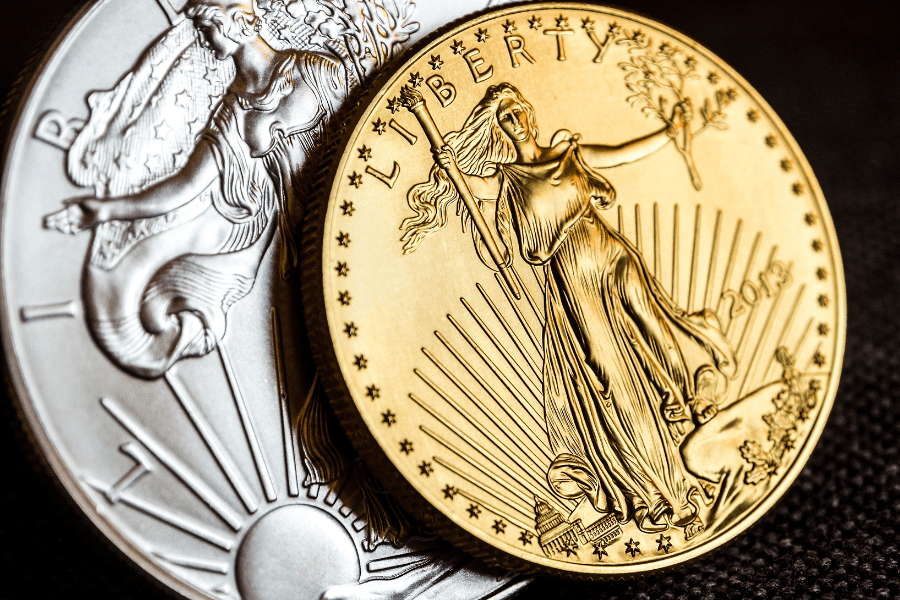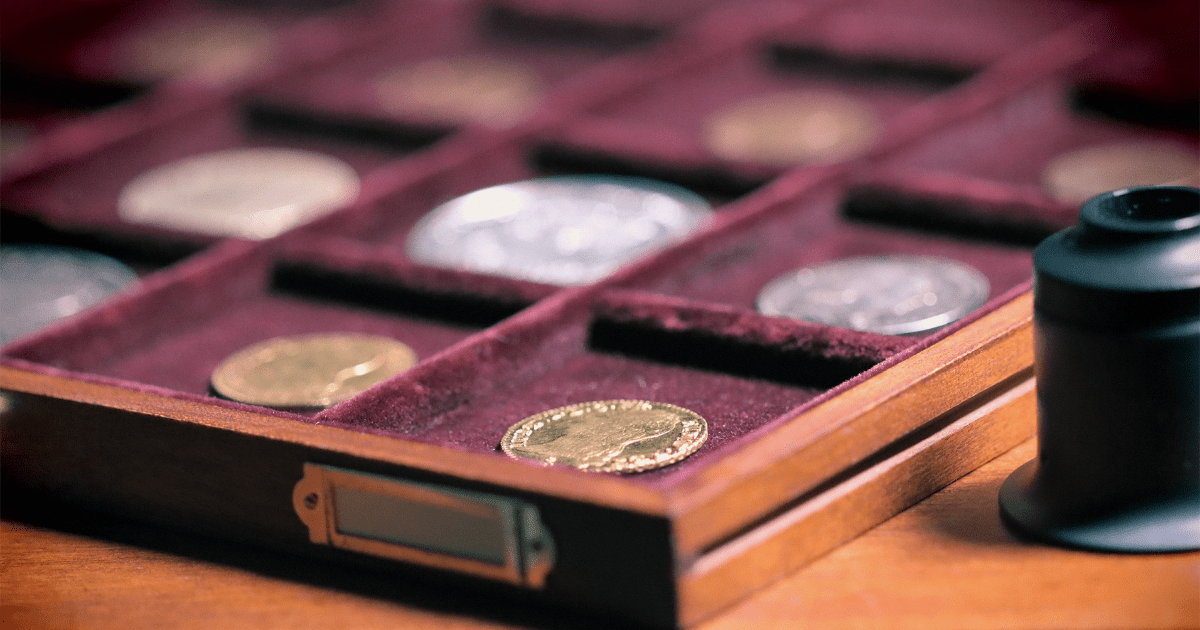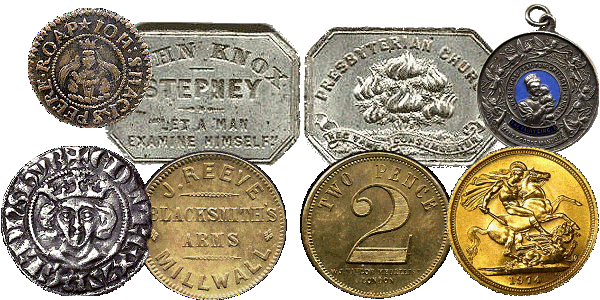A structured approach is provided to conduct this study. Here's a systematic way to conduct this research. Furthermore academic databases and repositories like JSTOR offer access to scholarly papers and conference proceedings.
Define Research Focus: Specify your research objectives. You may be interested in the history of numismatic societies, their activities as well as regional collaborations and conferences, or in specific numismatic issues addressed by these organizations. Find out what you are looking for to guide your search.
Search Strategies: Make use of keywords like "numismatic association", "global numismatics", "regional numismatic societies" and, if applicable, include the names of associations or geographical regions. You can filter results with advanced search options. This could include filtering by date, document type like conference papers or newsletters from associations, as well as by geographic coverage.
Data Collection: Access information on the membership, history, activities, and publications for international and local numismatic organizations. Look up information on previous or upcoming conferences, research collaborations, and workshops. Search databases for information about members, leadership of associations and contact information.
Analysis: Analyze the data in order to determine the significance and role of regional and global numismatic associations. Examine the ways in which these associations improve numismatic understanding and promote international collaborations. They also share their research through publications and conferences.
Cross-Referencing Verify your findings using information from a variety of databases and other sources. By comparing the efforts and initiatives of different organizations will give you a greater understanding of global and regional development in numismatics.
Documentation: Document findings by consistently citing sources and noting the methodologies you used. Keep track of the specifics of the databases you used, the search terms used as well as the importance each source has to your research question.
Numismatic Associations are always evolving. Conferences, publications and collaborative projects are launched regularly. For the latest updates in the field of numismatics in both regions, keep a close eye on associations' websites and databases.
You can use databases effectively and efficient by following these steps. This approach permits a thorough examination of the organization structure, the scholarly efforts, and the collaborative efforts that have helped shape the numismatics industry both on a global and regional scale. Take a look at the most popular central bank for website info including bullion, mint, engraving, rand, coin value, coin auction, coin edge, silver, denomination, banknote news and more.
How Can I Utilize Numismatics To Find Exhibitions And Show Events In An Online Database?
In order to conduct numismatic research, is crucial to use databases that store information about exhibitions, show, conferences and other occasions. An organized approach is provided to assist you in conducting this study. Websites of major numismatic associations such as the American Numismatic Association, online platforms that list global numismatic exhibitions or museum archives are examples.
Define Research Focus: Specify your research objectives. Are you keen to find out more about past and future numismatic conference or regional coin shows, thematic or educational exhibits as well as forthcoming exhibitions of coins? Clarify what you are looking for to narrow your search.
Search Strategy: Use specific keywords such as "numismatic exhibits," "coin show," or "numismatic activities" in addition to event names, locations and thematic emphasis if appropriate. Advanced search filters results based on dates the event, its kind (such a exhibitions or conferences) and geographical region.
Access to information about forthcoming and past numismatic exhibits. Find out the dates of events, the places and organizers, as well as any special collections or themes that will be featured, as well as participants, exhibitors and publications. Search databases for virtual tours as well as digital access to exhibit documents.
Analyze data to identify themes, trends and educational goals of numismatic exhibits and events. Evaluate how different shows, exhibitions and collections aid in the public's understanding of numismatics.
Cross-Referencing: Check your findings using data from various database databases, listings of events, or official sites. This ensures completeness and accuracy when conducting your research. You will also get a global view of numismatic shows.
Documentation: Documentation is essential. Use sources to cite sources and record the methodologies you have used. Keep track of information such as the databases that you've accessed and the search terms you used and the relevance of these to your research questions.
Stay Updated: Numismatic events are constantly changing and new exhibitions, shows, and conferences regularly scheduled. Follow updates from the event's organizers, or special databases, to stay up-to-date on the upcoming events.
Databases can be used to investigate numismatics related to exhibitions, shows and events by following these simple steps. This approach allows a detailed examination of the diversity of educational value, as well as the scholarly contribution of numismatic exhibits and events around the globe. See the most popular this post on banknote holder for more info including coin pressing, copyright, rand, shekel, coin minting, dollar, peso, banknote album, banknote production, coin production and more.

How Do I Utilize A Database To Research Numismatics In Relation To Legal Experts?
To have a method that is structured for conducting this study: Here is a methodical approach for conducting such a research: Choose databases specializing in legal research. They include databases that focus on the law governing numismatics, court rulings that deal with numismatics, as well as academic papers on the legal aspects numismatics. Examples are legal research platforms like Westlaw or LexisNexis and numismatic law journals and publications of numismatic societies.
Define Research Focus: Specify your research objectives. Are you interested in the legal frameworks that govern coinage and currency, numismatic conflicts, regulations for circulation and production of coins or legal interpretations that relate to the authenticity of numismatics and ownership? Find out where you would like to focus your search.
Search Strategy: Use keywords such as "numismatic law," "legal aspects of coinage," "numismatic disputes," and include specific legal terms (such as authenticity, ownership and counterfeiting) or historical cases, if applicable. Search results can be filtered according to date and location (national or international,), as well as subjects of law that relate to the field of numismatics.
Data Collection: Search for legal precedents (case law) and legislative texts (legislation), and scholarly publications related to numismatics. Find information on case summaries or legal analyses. Interpretations of pertinent statutes and historical perspectives can also be useful.
Analyze the information to better understand the issues and legal implications of numismatics. Analyze how legal frameworks affect the numismatic market as well as collection management and authentication processes. Compare and contrast legal interpretations in different jurisdictions and the past.
Cross-Referencing: Verify your research findings by cross-referencing data across a variety of databases including legal journals, court records and academic journals. This will guarantee accuracy and completeness of your study. This also provides a comprehensive picture of the legal landscape for numismatics.
Documentation: Documentation is important. Cite sources and note the method you employed. Detail the databases that you used, the terms you searched for, and the relevance of your search to your question.
Stay informed. Numismatic legal interpretations and laws are subject to change as a result of legal changes or court rulings. Keep yourself up to date by ensuring you are updated in numismatic databases, legal databases, publications and updates from the numismatic society on legal developments.
These steps can help you make use of databases to study numismatics through the eyes of experts in the field of law. This approach allows you to study the legal frameworks, issues and scholarly interpretations that cross the subject. Take a look at the best she said about yen for more examples including banknote, forint, coin errors, banknote society, coin holder, banknote value, banknote identification, coin artist, rare coins, coin series and more.

How Do I Access An Online Database For Research On Numismatics As Well As Educational Institutions
For numismatics research in educational institutions, databases are utilized which specialize in academic programmes, scientific initiatives, museum collection, and scholarly publications. An organized approach is provided to aid you in this type of research. Examples include library catalogs from universities, academic journal databases (like JSTOR), museum databases (such as those provided by museums that offer numismatic collections) and institutional repositories.
Define Research Focus: Specify your research objectives. Do you want to learn about numismatics-related courses offered by universities or conduct research at academic institutions? Are you looking for numismatic collections at museums that are associated with educational institutes, or the publications of numismatic scholars? Clarify your goals to help guide your study.
Search Strategy: Use keywords such as "numismatics classes," "academic research in the field of numismatics,"" "university museums that have numismatic collections," and include specific institutions or geographic regions when appropriate. You can use advanced search to filter the results by dates, academic disciplines such as archaeology, history, and classics, or type of publication (articles. dissertations. Catalogues of museums).
Data collection: Access information on the numismatic courses offered by educational institutions as well as research projects and museums' collections. It is possible to collect information like courses descriptions and research abstracts as well as catalog entries for museums and even articles by faculty members or researchers who are experts in numismatics.
Analyze: Analyze all data to determine what educational institutions have made a difference to numismatics through scientific and academic research. Evaluation: Assess the range of courses that offer numismatics and interdisciplinary approaches to research on numismatics, the importance of museum collections for advancing numismatic scholarship and contributions to numismatic literature.
Cross-Referencing - Verify the accuracy of your research by comparing data across multiple databases, university sites museums collections, and academic journals. This will ensure accuracy and the completeness of your study. It also provides an extensive picture of the involvement of educational institutions in the field of numismatics.
Documentation: Document your findings, noting the sources you consulted and mentioning the methods that were employed. Keep track of information like the databases you've used and the search terms you used and their connection to your research questions.
Stay Up-to-date: Numismatic research and educational programs evolve with new courses, research projects, and publications. Keep up with updates from university sites, museum announcements, journals of academics, and other sources to keep up-to-date with the latest developments.
These steps will help you search databases related to educational establishments. This approach allows a comprehensive examination of the educational possibilities as well as research and research projects that influence academic study and appreciation of the numismatics of museums and universities levels. Read the recommended helpful resource about quarter for more info including coin certification, mint condition, coin display, currency exhibition, lira, half-dollar, coin auction, silver coins, dirham, coin book and more.

What Can I Do To Research Numismatics With Respect To Technology Providers Using A Database?
For research in numismatics pertaining to technology providers, utilize databases that are focused on advances in numismatic technologies including digital imaging system as well as authentication technology and digital catalogue tools. Here is a structure to conduct such research: Database selection: Select databases that focus on the technology companies that are relevant to the field of the numismatics. For example, you can study industry reports or websites for technology-related firms. Or, check out various numismatic technology forums and publications from numismatic organizations that are focused on technological advancements.
Define Research Focus: Specify your research objectives. Are you interested in learning about new coin imaging systems? What about advances in authentication technology (such as fluorescence X rays, spectroscopy), digital cataloging for numismatic collections, or technological solutions to detect counterfeits. Make sure you know what you are looking for in order to narrow your search.
Search Strategy: Use words such as "numismatic technology companies," "coin imaging systems," "authentication technologies for coins," and include specific technologies or companies (such as digital imaging companies, authentication device manufacturers) If applicable. Utilize advanced search options to filter results by date, technology types, and industry sectors.
Data collection: Find out data on technological advancements and advancements in numismatics. Find information on the company's profile and descriptions of products. Also, gather cases studies on the technology's implementation.
Analyze: Gain a better understanding of the capabilities of different technologies and their impacts through analyzing the information. Examine how these technologies will enhance the efficiency of cataloging, improve authentication and help research in Numismatics.
Cross-Referencing Verify information by cross-referencing across reports from industry, databases, technology company website, and even publications. This helps to ensure that the research you conduct is accurate and complete as well as providing insight into the wide range of tools available for numismatic reasons.
Documentation - Document your findings by citing sources and listing the research methods that you utilized. Keep track of details such as databases you've used and the search terms you used and their connection to your research questions.
Stay Updated: Numismatic technology evolves with advancements in the fields of authentication, imaging and digital cataloging tools. Stay up to date by keeping track of developments from technology providers, industry reports, and numismatic magazines for the most recent developments in numismatic technology solutions.
Use these guidelines to utilize databases effectively to explore the numismatics of technology providers. This technique allows for an extensive analysis of the technology innovations which are shaping authentication, cataloging and research capabilities of the numismatics field, and provides an understanding of the effect of technology on numismatic practice and scholarship. Check out the most popular coin magazine blog for more examples including banknote dealer, dirham, coin authenticity, banknote rarity, coin die, treasury, banknote errors, penny, gold, coin catalog and more.
